Key points:
- Three mothers describe the ordeals and dangers they have faced as immigrants, trying to move their families to a safer life in the United States.
- María, from Honduras, fled for her life after her children’s father tried to kill her.
- Organized crime devastated Aracelis’ family, forcing her to leave Mexico with her children.
- Magaly endured the difficulties of pregnancy as she and her family emigrated from El Salvador.
The depth and strength of motherhood in the development of children transcend time, distance and any human condition.
Even in the most adverse and difficult conditions, motherhood is a symbol of security, hope and support for the weakest. That is the image that many also have of the church and its ministries. In the action of the church, many find shelter, support, love, solidarity and other gifts associated with motherhood.
That maternal attitude of the church reaches in ministerial action to many places where need and despair abound. The borders are areas where women and children often suffer the worst, as they are the most traditionally vulnerable sectors of society.
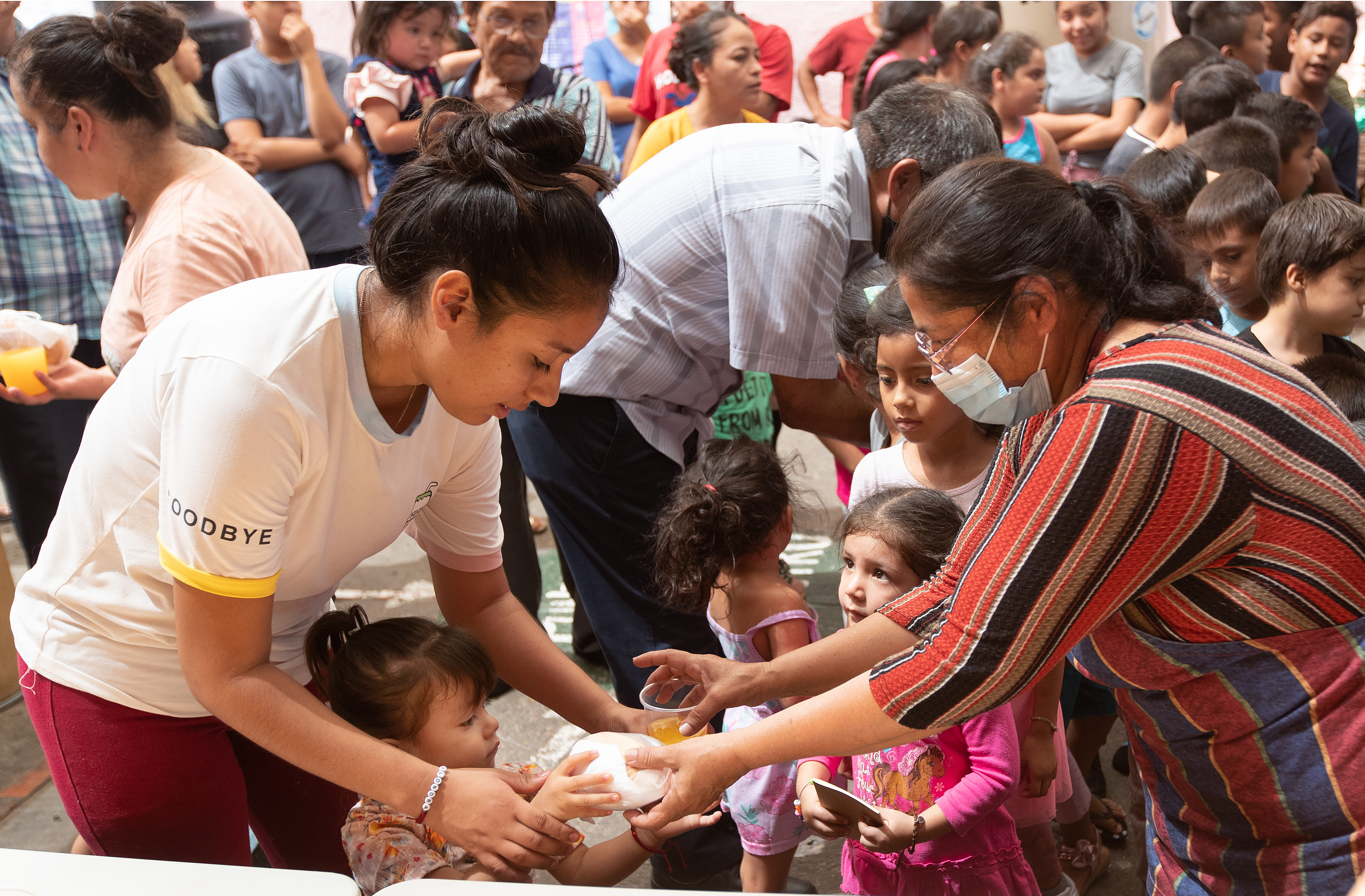
UM News has made a special report to present the stories of some mothers who have been confronting the difficulties, dangers and adversities of immigration but continue to be a source of hope, security and love.
The names of the interviewed mothers have been changed for their safety, but what cannot be changed is the imprint that their experiences have left on their lives.
“I was able to find my son by the grace of God.”
María is a Honduran mother from Lempira, who was traveling by land for seven months with her 5-year-old son, until she reached a point on the southern border of the state of Texas, where she was able to apply for asylum.
I left Honduras fleeing because the children's father tried to kill me. I had separated from him, but he offered to support me with the children by building us a house. I worked cooking from 4 in the morning to 8 at night; the little money that I earned was given to him for the construction.
When he was close to finishing the house, he met me somewhere because he wanted to talk to me. He tricked me with some arguments about children and summoned me to a somewhat desolate place. I went with fear and a bad feeling. But I saw two people near the site, and I told myself that if something happened, those people would hear. He arrived and we began to talk, when suddenly an armed man came out and put a gun to my chest, but when he fired it, it snapped and didn’t go off.
Instead of defending me, (the children’s father) held me down, covered my mouth so I couldn't scream, while the other man tried to shoot me. He felt that I was short of breath and that I was dying. Since they couldn't shoot, they began to hit and kick me, but that's when the people I had seen on my path arrived because they heard noises. They ran away and I was badly beaten, vomiting blood.
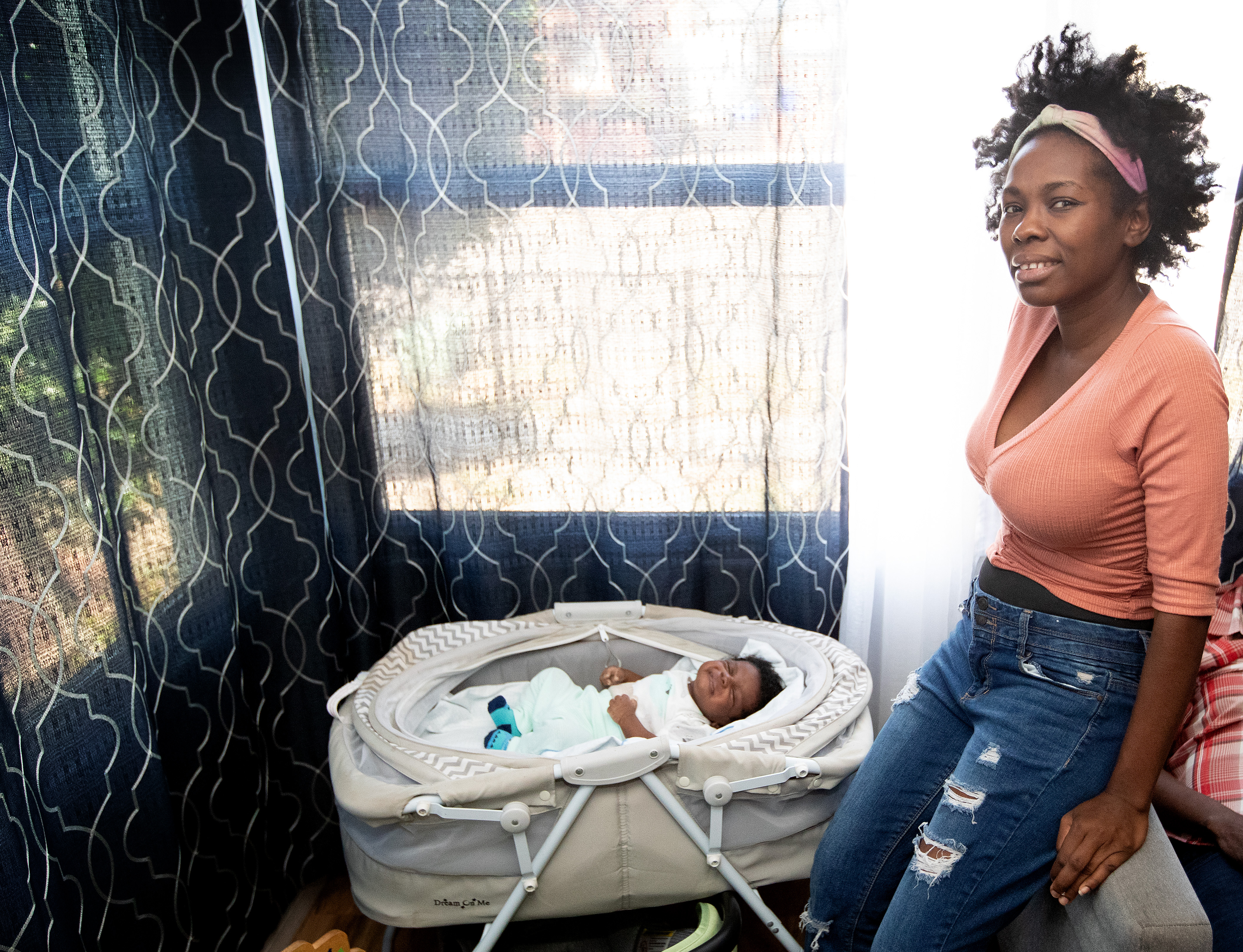
I made the complaint, but the authorities never did anything. In my family, only my mother and some of my sisters helped me. We are 11 siblings, and my brothers have always mistreated my mother and my sisters, so they didn't help me either.
Seeing the danger I was in and how defenseless I was, I took my youngest son and left Honduras. I came as best I could, without money, with nothing. I had to sleep on the sides of the roads. Sometimes some people helped us with room and board, sometimes we ate leftovers that other people threw away.
I am a Christian, and the only thing I carried was my faith in God and my conviction that God was with us so nothing would happen to us because on the way you see all kind of things happening.
I spent almost six months traveling, until I reached the border with the U.S., and I spent a month and a half waiting for the opportunity to enter. When I ventured with the favor of God to cross, I was able to arrive.
María was received at La Posada, a ministry of the Catholic Church, where people from other churches and organizations participate, including United Methodists. There she was receiving support for her needs and legal advice in her asylum case, and those who were helping her located and facilitated a meeting with David, her eldest son.
I had decided to come with my youngest son and leave the eldest with my mother because it would be easier for me to travel with only one until I could bring the other. But in an opportunity that I was able to communicate with my family, they told me that my son had decided to look for me and left my family's house.
That boy came alone from Honduras to Reynosa in Mexico, where they told me that the Mexican authorities had him. I was afraid that they would take him away from me, but in the end they told me that they would send him to this shelter with me. But then he tested positive for COVID and they held him there again until he got well.
I was very happy when I was able to meet him here at La Posada, after so many worries and anguish. But at the same time I was sad to see the conditions in which he arrived; his body was full of scratches with a bud on his skin.”
Subscribe to our
e-newsletter
David, 11 years old, is more sociable and smiling than the average child his age. He likes to talk and comes forward to answer questions with mischief and spontaneity. However, when his mother asked him about his trip and everything he experienced on that journey, his face changed drastically, his expression became serious, his gaze evasive and he was silent for a few seconds. Then his mother spoke again.
Since we met, he has not wanted to tell me what happened, no matter how much I ask him. He doesn't want to talk about it.
At La Posada, they have been able to receive health care, psychological support and pastoral support. The children have had the opportunity to go to school and receive English classes. David, with the dynamism that characterizes him, spoke of how happy he feels to have found his mother and how well he has been treated at the shelter: “Look, I already learned to say, 'I am fine, thank you. How are you?” he said in a fast burst of words, one after another.
María hopes to connect with family in the United States.
I dream of being able to meet my sister in Maryland and start a new life with my children.
Like this mother, La Posada has helped many immigrants reunite with their relatives in the United States, facilitating contacts and resources for their transportation.
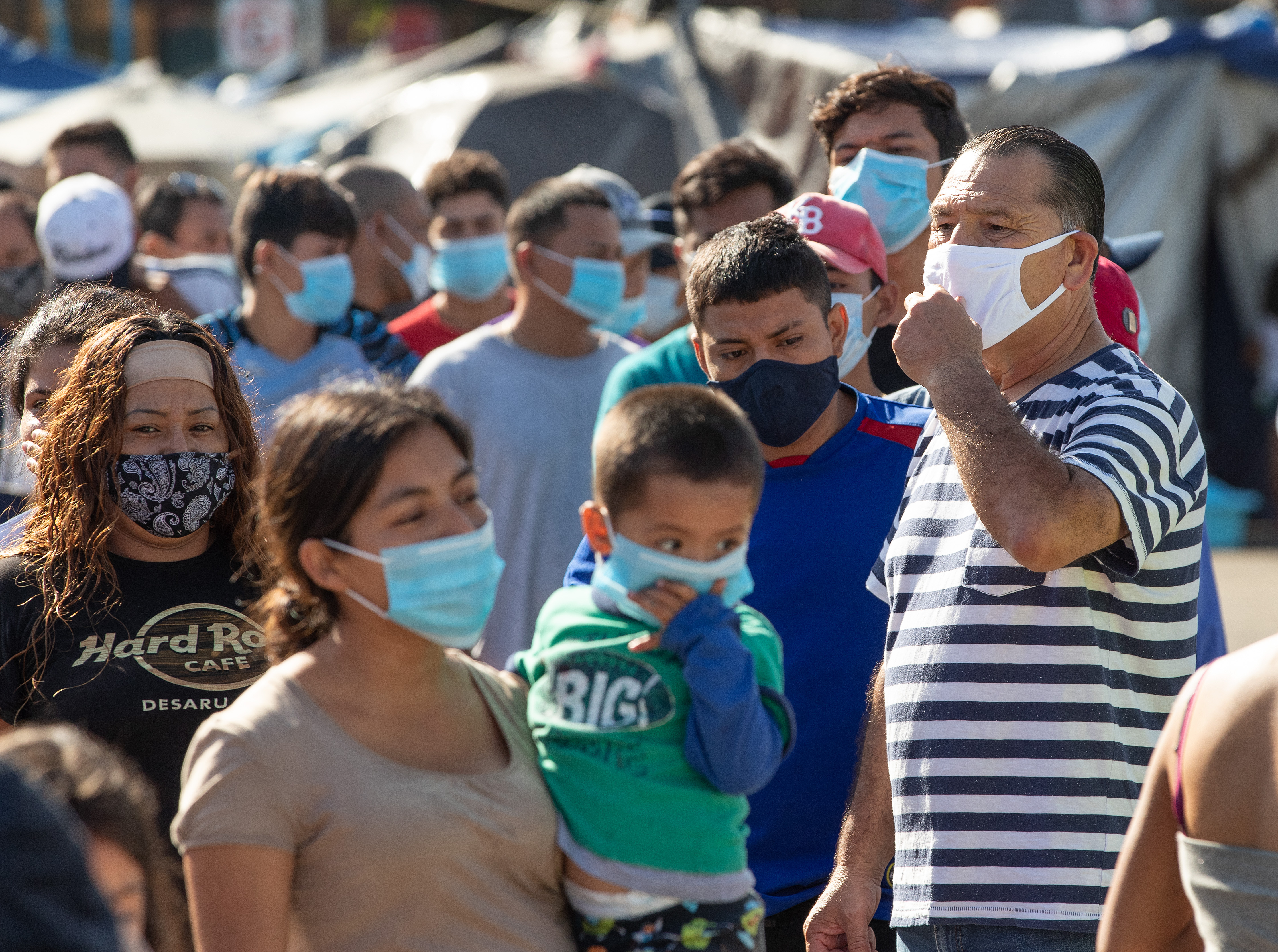
“I lost everything, but I still have my children.”
Aracelis is Mexican native from Guerrero state. She has suffered from the violence of organized crime groups and drug trafficking. From a shelter for immigrants on the border, she shared her story between tears, concern and despair due to the difficulties of getting humanitarian asylum applications processed under U.S. immigration policy.
I had my older brother who lived in the U.S. and came to Mexico to sell a car. He was kidnapped, and I had to assume family responsibilities beyond my own children. This forced me to return to my mother's house to be able to help her, since she is already a senior-age person.
For my brother's release, we paid part of his ransom and went looking for him, but he never showed up. From then on, I began to receive threats from the kidnappers, and one day my younger brother, 26 years old, answered the knock at the door at his house and it was an organized crime group that took him and my little sister, who was barely 15 years old.
After three months, they returned my sister to us, mistreated, malnourished, a victim of rape and torture. Also, they took my mother to see my brother. She found him chained and starving. They told her, 'We will give you your daughter. But your son, we want him to work for us. If you want to take him with you, we'll give him to you, but with a shot to the forehead; it's up to you.' That's how my brother had to work for them.
Meanwhile, my other two brothers disappeared and I had to go to help my mom. My husband took advantage of this situation to report me for family abandonment, although he knew everything that was happening and, through fraudulent actions, he transferred all our assets to his mother's name and prevented me from returning home. I stayed on the street with my children.
My brother had to continue working for this organization, even after becoming seriously ill. They kept him working in drug trafficking and facing rival groups, until he was killed in a government operation when they took over a warehouse, in a case that was publicly known nationwide.
All this involuntary relationship with this criminal organization has destroyed my family. They came to another of my sisters' house and killed her two children in cold blood.
All this has totally changed my life. I was a businesswoman, I was engaged in agricultural production, I had a catering business for banquets and a real estate company. Overnight I was left on the street with my children and being persecuted by that criminal organization.
I have anxiety attacks and constant fear for my children, who are now teenagers. I come running away from them because now they want my children and I cannot allow that. From the school where my children studied, they have already kidnapped three youngsters and it is surely to force them to work in organized crime. I am afraid that they will go to the store or to school.
Like Aracelis, thousands of mothers wait at the border to submit their asylum application, while they continue to struggle to raise their children in the midst of adversity.
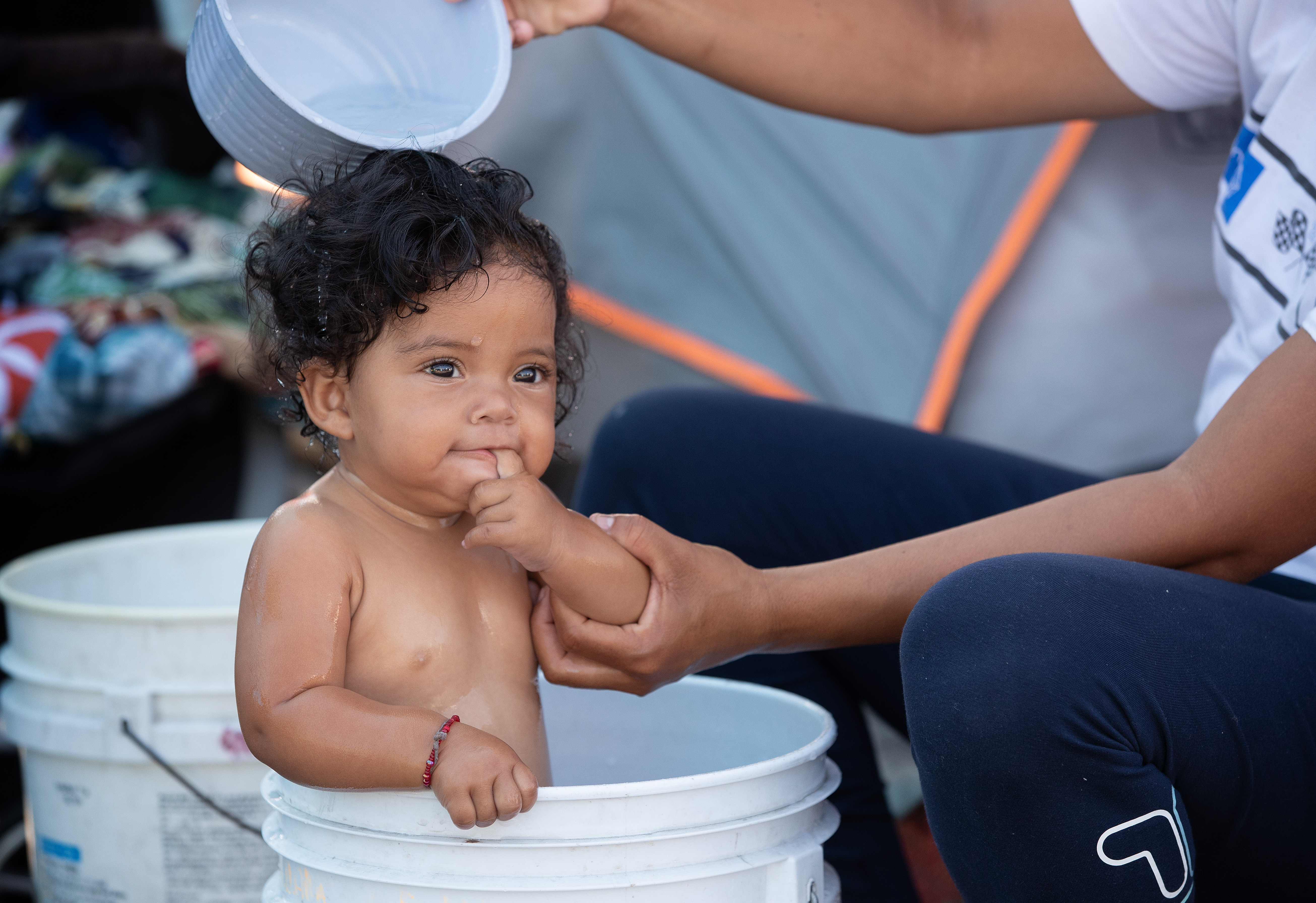
My daughter was born on the way.
At age 30, Magaly had to leave El Salvador, leaving two of her four children and her mother behind, along with her job as a kindergarten nanny, in order to emigrate to the United States. With 1,500 other people, Magaly lives with her youngest daughters and her husband in an improvised shelter with tarps and tents under one of the many bridges in the city of Tijuana, Mexico.
Magaly spent a good part of her journey suffering the consequences of her pregnancy.
It was very difficult for me. I didn't know that I was pregnant when we went out, but I started to feel sick on the way and I didn't know why. During our stay in Guatemala, I was able to take a test and we confirmed my pregnancy. We thought about going back, but we decided not to because our lives are in danger in El Salvador, since the 'maras' know that we have family in the U.S. and are looking to kidnap us for ransom.
I was traveling with my husband and my daughter, since we left our two sons with relatives in another part of the country to protect them. We have made the journey in trucks and walking.
Many parts of the journey we had to walk for hours, without water or food; I felt like I was passing out. Also, it was very hot and humid, making me feel without energy.
We wanted to get out of Guatemala quickly because the police were chasing us to rob and mistreat us, and we tried to travel as fast as possible. That made everything more difficult. Although we always find help in the most difficult moments. Sometimes one finds good and supportive people; but you also meet bad people, very bad.
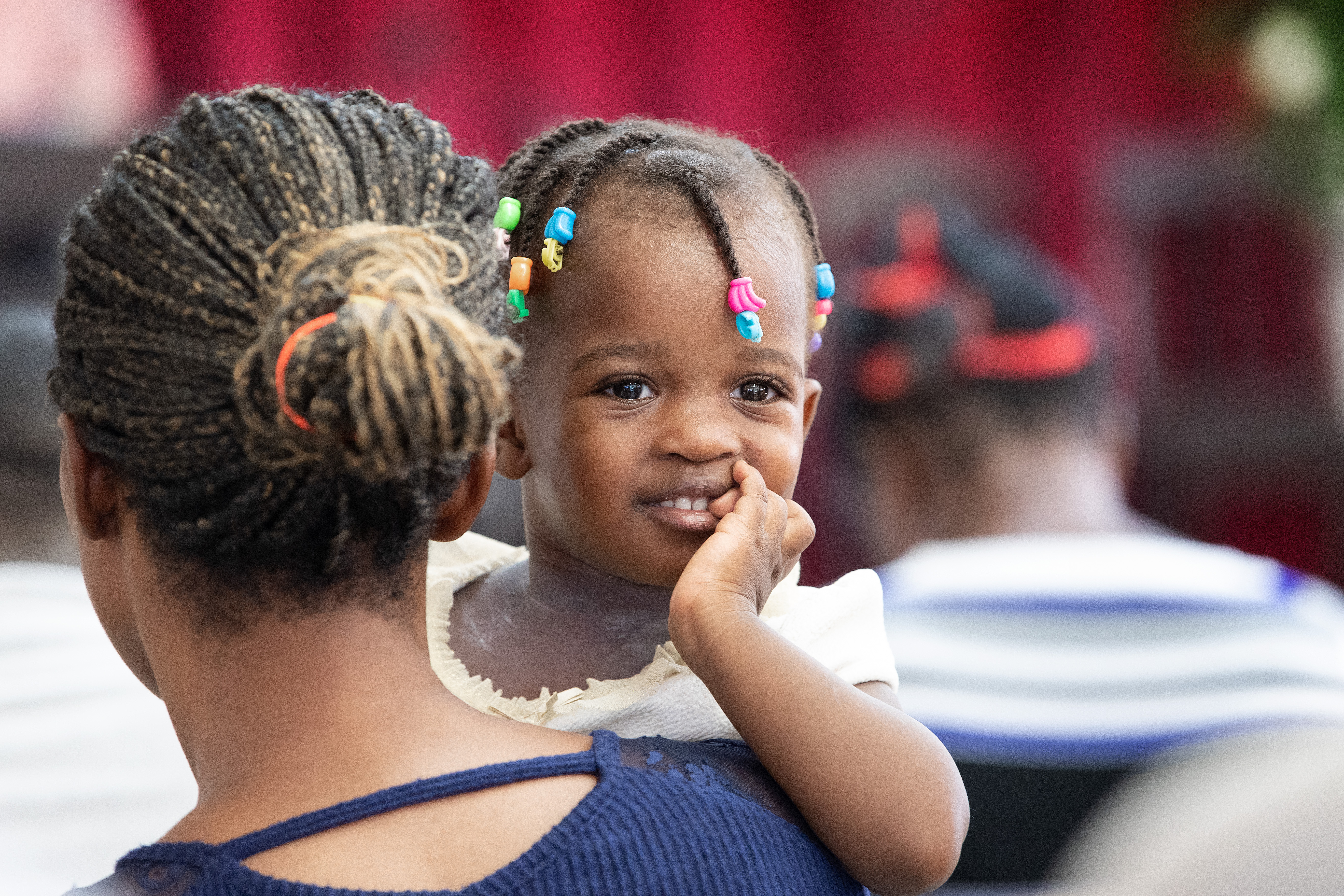
In Tapachula, for example — border city in the south of Mexico, where most of the migrants who come from Central and South America pass through — a woman opened her house to us to give us shelter temporarily when she saw me pregnant and with the typical discomforts of my status. She herself was the one who took me to the hospital when labor pains began.
With the one-month-old girl, we continue our journey, crossing Mexico until we reached this point on the border. We settled here because we had nowhere to go and the hostels were full.
Between sheets and what we could find, we opened this space and then they gave us some plastic to protect us from the rain. There are a lot of people here and we receive a lot of help with clothes, food and medicine. Here we were vaccinated against COVID, for example, and groups, churches and individuals come daily to bring us food.
One of those churches is the Methodist Church of Mexico A.R., which maintains a soup kitchen in the city, with the help of the United Methodist Committee on Relief. During the pandemic, the dining room was closed due to restrictions imposed by the Mexican government to prevent the spread of the COVID-19 virus. However, that did not stop the ministry of feeding migrant families in need, and kitchen workers prepared meals and took them to different shelters in the city.
It is not known how or when Magaly and her family will be able to submit their asylum applications. Like them, thousands of families wait at different points along the border for an opportunity.
We will hold out as long as we can, and we will move forward, hand in hand with God, because we seek a better future for our children — both those who come with us and those we leave behind in El Salvador.
Vasquez is director of United Methodist News for the Hispanic-Latino audience. He can be reached at (615) 742-5155 or by email: gvasquez@umnews.org. To read more United Methodist news, ideas and inspiration for ministry subscribe free to UMCOMtigo.




